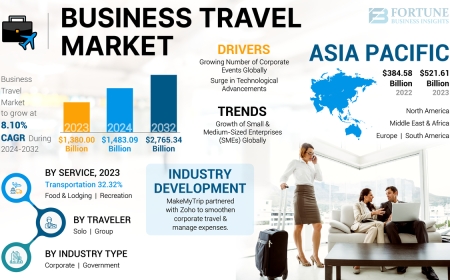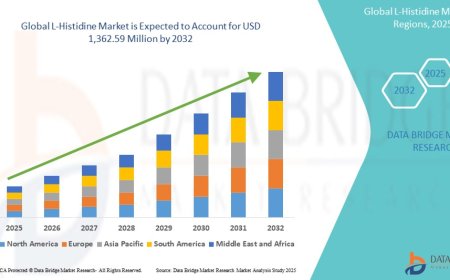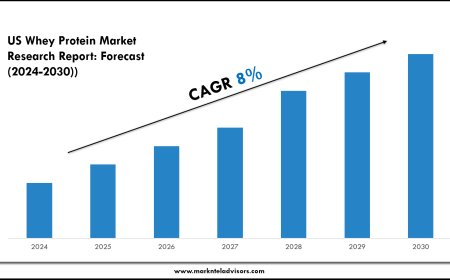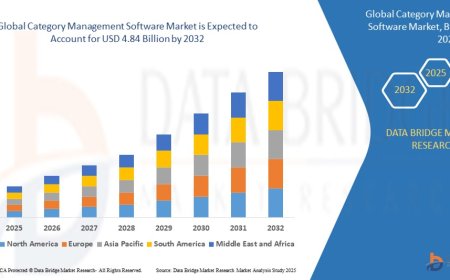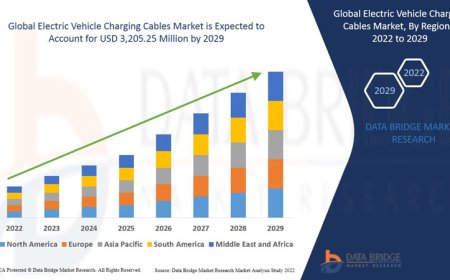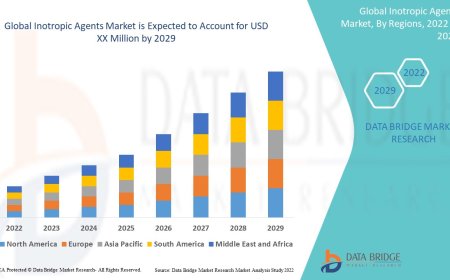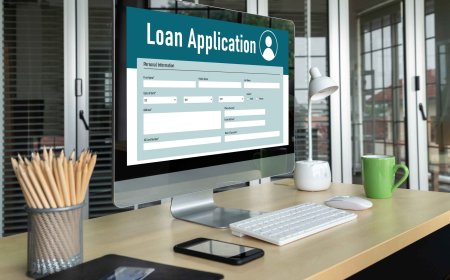Top 10 Banks in the USA to Trust with Your Money
Introduction In an era defined by digital transformation, economic volatility, and rising concerns over data privacy, choosing the right bank is no longer a routine decision—it’s a critical one. Your money is more than digits in an account; it represents security, freedom, and future opportunities. When you entrust your finances to a bank, you’re placing your confidence in its integrity, resilienc
Introduction
In an era defined by digital transformation, economic volatility, and rising concerns over data privacy, choosing the right bank is no longer a routine decisionits a critical one. Your money is more than digits in an account; it represents security, freedom, and future opportunities. When you entrust your finances to a bank, youre placing your confidence in its integrity, resilience, and commitment to your best interests. Not all institutions are created equal. Some prioritize shareholder profits over customer welfare; others invest in cutting-edge technology while maintaining human-centered service. This guide identifies the top 10 banks in the USA you can truly trust with your moneybanks that have earned their reputation through consistent performance, ethical practices, robust security, and customer-focused innovation.
Trust in banking is built over decadesnot through flashy advertising, but through reliability during crises, transparency in fees, and unwavering commitment to regulatory compliance. These institutions have weathered recessions, cyber threats, and market upheavals while preserving client assets and maintaining public confidence. Whether youre opening your first checking account, saving for retirement, or managing business finances, the bank you choose should be a long-term partner, not a transactional vendor.
This article goes beyond rankings based on assets or branch count. Weve evaluated institutions on criteria that matter most to everyday consumers: FDIC insurance coverage, digital banking experience, fee structures, customer satisfaction, fraud protection, community impact, and long-term financial stability. The banks listed here have demonstrated excellence across these dimensions. They are not the loudest in marketing campaignsthey are the most dependable.
Why Trust Matters
Trust is the foundation of the entire financial system. Without it, deposits vanish, credit contracts, and economies stall. In 2008, the collapse of trust in major financial institutions triggered a global recession. Since then, regulators, consumers, and industry leaders have worked to rebuild that trustbut it remains fragile. Today, consumers face new challenges: phishing scams, identity theft, opaque fee structures, and algorithm-driven customer service that often feels impersonal.
When you deposit money into a bank, youre relying on that institution to safeguard your funds, process transactions accurately, protect your personal data, and honor its commitmentseven when market conditions turn unfavorable. A bank that prioritizes trust will:
- Offer FDIC insurance up to the legal limit ($250,000 per depositor, per insured bank, for each account ownership category)
- Maintain transparent, predictable fee policies with no hidden charges
- Invest heavily in cybersecurity and fraud detection systems
- Provide clear, accessible customer support without long wait times or automated dead-ends
- Adhere to ethical lending and investment practices
- Support financial literacy and community development
Trust also extends to how banks treat their customers during difficult times. Institutions that waived fees during the pandemic, offered payment flexibility, or expanded digital access without charging extra earned lasting loyalty. Conversely, banks that increased fees, reduced services, or ignored customer complaints saw trust erode rapidly.
Choosing a trustworthy bank isnt about finding the highest interest rate or the most branches. Its about finding an institution whose values align with yours. One that treats your money with the same care it treats its own balance sheet. Thats why the banks on this list stand aparttheyve built reputations not through hype, but through consistent, ethical action over decades.
Top 10 Banks in the USA to Trust with Your Money
1. JPMorgan Chase & Co.
JPMorgan Chase stands as the largest bank in the United States by assets and one of the most trusted financial institutions globally. With over $3.7 trillion in assets and a presence in all 50 states, Chase offers a comprehensive suite of banking servicesfrom checking and savings accounts to wealth management and small business loans. What sets Chase apart is its relentless investment in technology. Its mobile app consistently ranks among the best in the industry for usability, security, and feature richness. Customers can deposit checks via smartphone, freeze cards instantly, receive real-time fraud alerts, and access 24/7 chat support powered by AI that understands contextnot just keywords.
Chase has maintained a strong capital reserve ratio, weathered multiple economic downturns without government bailouts, and consistently received high marks for customer satisfaction in independent surveys. Its fee structure is transparent: no monthly maintenance fees on its Total Checking account if you meet direct deposit or minimum balance requirements. The bank also offers free financial education resources, including budgeting tools and credit score monitoring, to help customers make informed decisions.
Chases commitment to community reinvestment is equally notable. Through its Community Development Financial Institutions (CDFI) partnerships, the bank has funded over $300 billion in low- and moderate-income housing, small business loans, and nonprofit initiatives since 2010. This long-term investment in societal well-being reinforces its reputation as a responsible steward of public trust.
2. Bank of America
Bank of America has evolved from a regional lender into a national powerhouse with a deep commitment to customer-centric innovation. With over 4,000 branches and 16,000 ATMs nationwide, it offers unmatched physical access, but its digital platform is equally compelling. The Bank of America Mobile Banking app features AI-driven insights that analyze spending patterns, predict cash flow, and suggest savings goalstools that empower users to take control of their finances without needing a financial advisor.
Its Keep the Change program, which rounds up debit card purchases and transfers the difference to savings, has helped millions of customers build emergency funds without feeling the pinch. The bank also offers zero-liability protection on debit and credit cards, meaning customers are never held responsible for unauthorized transactions.
Bank of America has invested heavily in cybersecurity, deploying biometric authentication, behavioral analytics, and end-to-end encryption across its platforms. It was among the first major banks to eliminate overdraft fees on everyday debit card purchasesa move that significantly improved customer trust after years of criticism.
Additionally, the banks financial wellness program provides free access to certified financial counselors and personalized planning tools. Its focus on financial inclusionparticularly for underserved communitieshas earned it recognition from the Consumer Financial Protection Bureau (CFPB) and multiple nonprofit watchdogs.
3. Wells Fargo
Wells Fargo has undergone one of the most dramatic reputational turnarounds in modern banking history. Once plagued by scandal over unauthorized accounts and aggressive sales tactics, the bank has since implemented sweeping governance reforms, replaced its entire board of directors, and restructured its incentive systems to prioritize customer ethics over sales quotas.
Today, Wells Fargo is rebuilding trust through transparency and accountability. It now publishes detailed annual reports on its compliance and customer service metrics. Its digital banking platform offers robust fraud detection, real-time alerts, and biometric login options. Customers can lock/unlock cards, set spending limits, and receive instant notifications for unusual activityall within the app.
Wells Fargos fee structure has been simplified significantly. It now offers a Way to Well checking account with no monthly service fee for customers who maintain a $1,500 minimum daily balance or enroll in direct deposit. The bank also provides free credit score monitoring and identity theft protection to all account holders.
Its community impact remains strong. Wells Fargo has committed $1 trillion in financing for affordable housing, renewable energy, and small business development by 2030. It partners with local organizations to offer financial literacy workshops in schools and community centersrebuilding relationships at the grassroots level.
While past mistakes still linger in public memory, Wells Fargos sustained efforts to reform demonstrate a genuine commitment to earning back trustone customer at a time.
4. Citibank
Citibank, a global leader in consumer and institutional banking, brings international expertise and innovation to the U.S. market. It is one of the few banks offering seamless cross-border banking services for travelers, expatriates, and international professionals. Its mobile app is among the most feature-rich, offering multi-currency accounts, real-time FX rates, and global ATM fee reimbursements.
Citibanks commitment to digital security is industry-leading. It uses advanced machine learning to detect anomalies in transaction patterns, reducing fraud by over 40% since 2020. Customers benefit from 24/7 monitoring, instant card freezes, and a dedicated fraud resolution team that responds within hoursnot days.
Fees are straightforward: no monthly fees on its Citi Simple Checking account if you maintain a $1,500 minimum balance or set up direct deposit. The bank also offers free access to credit reports and scores through its Citi Credit Score tool, updated weekly.
Citibank has long championed financial inclusion. It launched the Citi Impact Fund, a $500 million initiative to support underserved communities through small business lending, affordable housing, and financial education. Its partnership with nonprofit organizations has helped over 1.2 million low-income individuals access basic banking services for the first time.
With a strong balance sheet, consistent profitability, and a focus on ethical banking practices, Citibank has reestablished itself as a reliable and forward-thinking institution.
5. U.S. Bank
U.S. Bank, the fifth-largest bank in the U.S., is known for its conservative financial management and deep regional roots. Unlike some national banks that prioritize rapid growth, U.S. Bank focuses on stability, customer loyalty, and long-term relationships. It consistently ranks among the top banks in customer satisfaction surveys conducted by J.D. Power and the American Customer Satisfaction Index (ACSI).
The banks digital platform is intuitive and secure, with features like U.S. Bank Mobile Deposit, instant card controls, and AI-powered budgeting tools. Its Simple Checking account has no monthly service fee, no minimum balance, and no overdraft fees on debit card purchasesa rarity among large banks.
U.S. Bank is a leader in sustainable banking. It was one of the first major institutions to commit to net-zero emissions by 2050 and has financed over $100 billion in green infrastructure projects, including wind farms, solar installations, and energy-efficient buildings.
Its community involvement is extensive. Through its U.S. Bank Foundation, the bank has donated over $1 billion to education, housing, and workforce development since 2000. It also offers free financial coaching to small business owners and nonprofit organizationshelping them thrive without taking on high-interest debt.
With a strong capital position, low loan default rates, and a culture that prioritizes customer needs over sales targets, U.S. Bank exemplifies what it means to be trustworthy.
6. PNC Bank
PNC Bank, headquartered in Pittsburgh, has built a reputation for operational excellence and customer-first innovation. It was the first major U.S. bank to introduce Virtual Wallet, a digital tool that organizes your money into three distinct spending buckets: Spend, Save, and Reserve. This behavioral nudge helps customers budget more effectively without relying on external apps.
PNCs mobile app is highly rated for its simplicity and security. It offers biometric login, real-time fraud alerts, and the ability to lock/unlock cards with a single tap. Its PNC SmartZone checking account offers no monthly fee if you meet direct deposit or minimum balance requirementsand includes free access to over 60,000 ATMs nationwide.
The bank has a strong record of ethical lending. It avoids predatory practices, does not engage in high-risk mortgage underwriting, and maintains one of the lowest delinquency rates among large banks. PNC also offers free financial education webinars, budgeting templates, and credit-building tools for young adults and seniors alike.
Its commitment to environmental and social responsibility is equally impressive. PNC has pledged $100 billion in sustainable financing by 2030 and has been recognized by the Dow Jones Sustainability Index for its corporate governance practices.
With a focus on long-term value over short-term gains, PNC has earned the trust of millions of customers who appreciate its quiet reliability.
7. Capital One
Capital One has redefined modern banking by building its entire business model around data-driven customer service and digital-first innovation. Originally a credit card company, it has grown into a full-service bank with a strong reputation for transparency and customer empowerment.
Its mobile app is a standout: it offers real-time spending categorization, personalized savings goals, and predictive cash flow analysis. Capital One was the first major bank to eliminate all overdraft fees on checking accountsa move that significantly boosted customer trust and retention.
The bank offers a 360 Checking account with no monthly fees, no minimum balance, and no foreign transaction fees. Customers also receive free credit monitoring and identity theft protection through its Capital One CreditWise tool, which provides VantageScore updates weekly.
Capital One invests heavily in cybersecurity, using AI to detect and prevent fraud before it occurs. Its Eno virtual assistant, available via text or voice, answers questions, alerts users to unusual activity, and even helps dispute chargesall without human intervention.
Its social responsibility initiatives include funding financial literacy programs in public schools, supporting minority-owned small businesses, and offering no-fee banking options for unbanked populations. Capital Ones commitment to ethical data use and customer privacy has earned it high marks from consumer advocacy groups.
8. TD Bank
TD Bank, known for its Customer First philosophy, brings a uniquely service-oriented culture to the U.S. market. With over 1,200 branches along the East Coast, it offers extended hoursincluding weekend bankingmaking it one of the most accessible banks for working families.
Its digital platform is clean, secure, and intuitive. The TD Mobile App allows customers to deposit checks, transfer funds, and manage accounts with ease. It features real-time fraud alerts, card controls, and biometric authentication. Unlike many banks, TD does not charge fees for using non-TD ATMs in the U.S.a rare benefit.
TD Banks checking accounts have no monthly maintenance fees if you maintain a $100 minimum balance or enroll in direct deposit. It also offers free credit score access and identity theft protection.
The bank is widely recognized for its ethical practices. It avoids high-risk lending, has low rates of customer complaints, and consistently ranks among the top banks in customer satisfaction surveys. TD Bank has also committed to becoming carbon neutral by 2030 and has invested over $1 billion in renewable energy projects and community development initiatives.
Its reputation for treating customers with respect and patiencewhether in person or onlinehas made it a favorite among families, seniors, and small business owners.
9. Ally Bank
Ally Bank is a fully digital bank with no physical branchesa model that allows it to pass savings directly to customers in the form of higher interest rates and lower fees. Despite being entirely online, Ally consistently ranks among the most trusted banks in the U.S. for its transparency, simplicity, and customer-centric approach.
Its savings accounts offer some of the highest APYs in the industry, with no minimum balance requirements and no monthly fees. Its checking account includes unlimited ATM fee reimbursements worldwide, free wire transfers, and a debit card with no foreign transaction fees.
Allys digital platform is designed for ease of use. The mobile app is intuitive, secure, and features real-time notifications, budgeting tools, and instant customer support via chat. It also offers free credit monitoring and identity theft protection.
Ally is a leader in ethical banking. It does not charge overdraft fees, does not sell customer data, and does not engage in predatory lending. Its entire business model is built on trust: if customers feel theyre being treated fairly, they stay.
The bank has also invested in financial education, offering free webinars, calculators, and guides on topics ranging from student loans to retirement planning. Its commitment to accessibility and fairness has earned it top ratings from Consumer Reports and NerdWallet.
10. Discover Bank
Discover Bank, best known for its credit cards, has quietly become one of the most trusted banks in the U.S. for its simplicity, honesty, and customer-focused policies. It offers no-fee checking and savings accounts, with no minimum balance requirements and no hidden charges.
Discovers mobile app is clean and functional, offering real-time transaction alerts, budget tracking, and instant card controls. Its savings accounts offer competitive interest rates, and its cash-back rewards on debit card purchases are among the highest in the industry.
Discover was the first major bank to eliminate all overdraft fees on debit cards. It also offers free credit score monitoring, updated weekly, with personalized tips to improve your score. There are no monthly fees, no foreign transaction fees, and no minimum balance requirements.
Discovers commitment to transparency is unmatched. Its website clearly outlines every fee, policy, and termno fine print. It also offers free financial literacy resources, including guides on building credit, avoiding debt traps, and planning for emergencies.
Its customer service is consistently rated among the best in the industry. Unlike many banks that outsource support, Discover handles all inquiries in-house, with real people who can resolve issues quickly and without scripts.
With no branches, no legacy costs, and a laser focus on customer trust, Discover Bank proves that digital-only institutions can be among the most reliable.
Comparison Table
| Bank | FDIC Insured | No Monthly Fees? | No Overdraft Fees? | Free Credit Monitoring? | Mobile App Rating | Community Investment |
|---|---|---|---|---|---|---|
| JPMorgan Chase | Yes | Yes (with conditions) | Yes (on debit purchases) | Yes | 5/5 | High ($300B+ since 2010) |
| Bank of America | Yes | Yes (with conditions) | Yes (on everyday debit) | Yes | 5/5 | High (financial wellness programs) |
| Wells Fargo | Yes | Yes (with conditions) | Yes (on debit purchases) | Yes | 4.5/5 | High ($1T by 2030) |
| Citibank | Yes | Yes (with conditions) | Yes | Yes | 5/5 | High ($500M impact fund) |
| U.S. Bank | Yes | Yes (no minimum) | Yes | Yes | 4.8/5 | Very High ($1B+ since 2000) |
| PNC Bank | Yes | Yes (with conditions) | Yes | Yes | 4.7/5 | High ($100B by 2030) |
| Capital One | Yes | Yes (no minimum) | Yes | Yes | 5/5 | High (financial literacy programs) |
| TD Bank | Yes | Yes (with conditions) | Yes | Yes | 4.6/5 | High (carbon neutral by 2030) |
| Ally Bank | Yes | Yes (always) | Yes | Yes | 5/5 | Medium (education focus) |
| Discover Bank | Yes | Yes (always) | Yes | Yes | 4.9/5 | Medium (financial literacy) |
FAQs
What makes a bank trustworthy?
A trustworthy bank is one that prioritizes customer welfare over profit maximization. It offers transparent fees, strong security, FDIC insurance, ethical lending practices, and responsive customer service. Trustworthy banks invest in cybersecurity, avoid predatory tactics, and support community development. They are consistent in their actions, not just their marketing.
Are online banks safe?
Yes, online banks are safe if they are FDIC-insured and use industry-standard encryption, multi-factor authentication, and fraud monitoring. Institutions like Ally Bank and Discover Bank have proven that digital-only models can be more secure and transparent than traditional banks with legacy systems.
What should I look for in a banks mobile app?
Look for real-time transaction alerts, biometric login, card controls (freeze/unlock), instant fraud reporting, and free credit score access. A good app should feel intuitive, not cluttered. Avoid banks that require you to log into a website for basic functionstrue digital banks make everything accessible on mobile.
Do all banks charge overdraft fees?
No. Many of the top banks listed heresuch as Ally, Discover, Capital One, and U.S. Bankdo not charge overdraft fees on debit card purchases. Others have eliminated them entirely or limited them to specific circumstances. Always check the terms before opening an account.
Is my money safe if a bank fails?
Yes, as long as the bank is FDIC-insured. The Federal Deposit Insurance Corporation protects up to $250,000 per depositor, per insured bank, for each account ownership category. This includes checking, savings, money market accounts, and CDs. Joint accounts and trust accounts have separate coverage limits.
How do I know if a bank is ethically run?
Research the banks history: Has it been fined for deceptive practices? Does it disclose its lending and investment policies? Does it support financial literacy or community development? Look for third-party ratings from organizations like the Consumer Financial Protection Bureau, Better Business Bureau, or nonprofit watchdogs.
Should I choose a national bank or a local credit union?
Both can be trustworthy. National banks offer broader networks and advanced technology; credit unions often provide higher interest rates and lower fees because theyre member-owned. If you value personalized service and community impact, a local credit union may be ideal. If you travel frequently or need advanced digital tools, a national bank may be better. Always compare fees, services, and values.
Can I trust banks with my personal information?
Yesif you choose a bank with strong cybersecurity practices. The banks listed here use end-to-end encryption, biometric authentication, AI-driven fraud detection, and regular third-party security audits. Avoid banks that sell your data or use aggressive cross-selling tactics. Transparency is key.
How often should I review my banks terms?
At least once a year. Banks can change fees, interest rates, and policies with notice. Stay informed by checking your account statements, reading email notifications, and visiting your banks website regularly. If terms become less favorable, consider switching to a more trustworthy institution.
Do these banks offer help for financial emergencies?
Yes. Many offer free financial counseling, budgeting tools, and emergency loan options. Some, like Bank of America and U.S. Bank, provide access to certified financial planners. Others, like Ally and Discover, offer no-fee cash advances or overdraft protection without penalties. Trustworthy banks want to help you succeednot penalize you for hardship.
Conclusion
Choosing a bank is one of the most important financial decisions youll make. Its not about the biggest logo, the most branches, or the highest interest rateits about finding an institution that treats your money with the same care and respect you do. The top 10 banks listed here have earned their reputation through consistency, integrity, and a deep commitment to customer trust.
From JPMorgan Chases technological leadership to Ally Banks no-fee simplicity, each institution demonstrates that trust is built through actionsnot slogans. They invest in security, eliminate hidden fees, support communities, and empower customers with tools and education. They are not perfect, but they are transparent about their efforts to improve.
As you evaluate your options, ask yourself: Does this bank make me feel secure? Does it treat me like a partner, not a transaction? Does it align with my values around fairness, privacy, and responsibility? The answers will guide you to the right choice.
In a world where financial institutions come and go, trust is the only currency that truly endures. Choose wisely. Your future self will thank you.






